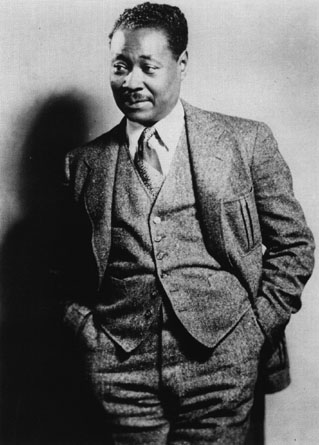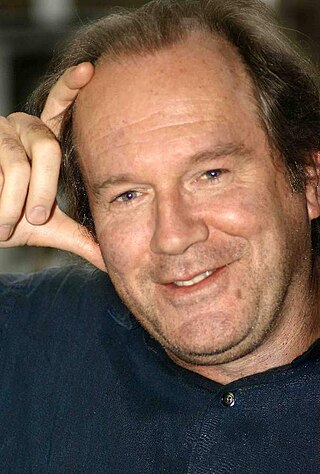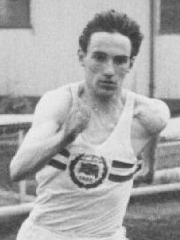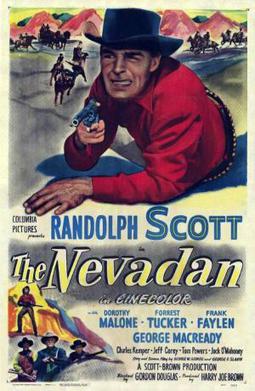 | |
| Author | William Golding |
|---|---|
| Country | United Kingdom |
| Language | English |
| Publisher | Faber and Faber |
Publication date | Feb 1984 |
| Media type | |
| Pages | 191 |
| ISBN | 0-571-13206-5 |
The Paper Men is a 1984 novel by British writer William Golding.
 | |
| Author | William Golding |
|---|---|
| Country | United Kingdom |
| Language | English |
| Publisher | Faber and Faber |
Publication date | Feb 1984 |
| Media type | |
| Pages | 191 |
| ISBN | 0-571-13206-5 |
The Paper Men is a 1984 novel by British writer William Golding.
The novel follows Wilfred Barclay, an alcoholic and middle-aged writer trapped in an unhappy marriage, and his conflict with Rick Tucker, a young professor determined to write Barclay's biography. Barclay tries to escape Tucker’s attention by fleeing to Europe. Tucker is desperate to gain control over the writer's personal papers as he pursues Barclay across Europe. [1]
Golding was inspired to write the novel when reading Carlos Baker's biography of Ernest Hemingway. Wilfred Barclay is to some extent a self-portrait by Golding, who was not patient with his critics. [2]

William Goldman was an American novelist, playwright, and screenwriter. He first came to prominence in the 1950s as a novelist before turning to screenwriting. Among other accolades, Goldman won two Academy Awards in both writing categories—once for Best Original Screenplay for Butch Cassidy and the Sundance Kid (1969) and once for Best Adapted Screenplay for All the President's Men (1976).

Sir William Gerald Golding was a British novelist, playwright, and poet. Best known for his debut novel Lord of the Flies (1954), he published another twelve volumes of fiction in his lifetime. In 1980, he was awarded the Booker Prize for Rites of Passage, the first novel in what became his sea trilogy, To the Ends of the Earth. He was awarded the 1983 Nobel Prize in Literature.

Wilfred Edward Salter Owen MC was an English poet and soldier. He was one of the leading poets of the First World War. His war poetry on the horrors of trenches and gas warfare was much influenced by his mentor Siegfried Sassoon and stood in contrast to the public perception of war at the time and to the confidently patriotic verse written by earlier war poets such as Rupert Brooke. Among his best-known works – most of which were published posthumously – are "Dulce et Decorum est", "Insensibility", "Anthem for Doomed Youth", "Futility", "Spring Offensive" and "Strange Meeting". Owen was killed in action on 4 November 1918, a week before the war's end, at the age of 25.

Robert Barclay was a Scottish Quaker, one of the most eminent writers belonging to the Religious Society of Friends and a member of the Clan Barclay. He was a son of Col. David Barclay, Laird of Urie, and his wife, Lady Katherine Barclay. Although he himself never lived there, Barclay was titular governor of the East Jersey colony in North America through most of the 1680s.

American literature is literature written or produced in the United States and in the colonies that preceded it. The American literary tradition is part of the broader tradition of English-language literature, but also includes literature produced in languages other than English.

Festus Claudius "Claude" McKay OJ was a Jamaican-American writer and poet. He was a central figure in the Harlem Renaissance.

William Andrew Murray Boyd is a Scottish novelist, short story writer and screenwriter.

John Barclay was a Scottish writer, satirist and Neo-Latin poet.
Jessie Pope was an English poet, writer, and journalist, who remains best known for her patriotic, motivational poems published during World War I. Wilfred Owen wrote his 1917 poem Dulce et Decorum est to Pope, whose literary reputation has faded into relative obscurity as those of war poets such as Owen and Siegfried Sassoon have grown.

Lionel Davidson FRSL was an English novelist who wrote spy thrillers. He received Authors' Club Best First Novel Award once and the Gold Dagger Award three times.

Inside Mr Enderby is the first volume of the Enderby series, a quartet of comic novels by the British author Anthony Burgess.

Linwood Barclay is an American-born Canadian author, noted as a novelist, humorist, and (former) columnist. His popular detective novels are bestsellers in Canada and internationally, beginning with No Time for Goodbye in 2007.

Peter Frank Radford is a former British sprinter, who competed at 100 and 200 metres, broke world records, and won Olympic medals, despite having been seriously ill as a child due to a hole in his kidney.

John Roberts Tunis, "the 'inventor' of the modern sports story", was an American writer and broadcaster. Known for his juvenile sports novels, Tunis also wrote short stories and non-fiction, including a weekly sports column for the New Yorker magazine. As a commentator Tunis was part of the first trans-Atlantic sports cast and the first broadcast of the Wimbledon Tennis Tournament to the United States.
The Boston Daily Advertiser was the first daily newspaper in Boston, and for many years the only daily paper in Boston.

Caribbean Gold is a 1952 American historical pirate adventure film directed by Edward Ludwig and starring John Payne, Arlene Dahl and Cedric Hardwicke. It was produced by Pine-Thomas Productions for distribution by Paramount Pictures and was based on the novel Carib Gold by Ellery Clark. The film's sets were designed by the art director Hal Pereira. It is also known by the alternative title Caribbean.
Wilfred Watson was professor emeritus of English at Canada's University of Alberta for many years. He was also an experimental Canadian poet and dramatist, whose innovative plays had a considerable influence in the 1960s. The Dictionary of Literary Biography (DLB) says that "Watson ushered in an avant-garde in Canadian theater years before the rear guard had fully emerged."

The Nevadan is a 1950 American Cinecolor Western film directed by Gordon Douglas and starring Randolph Scott, Dorothy Malone, Forrest Tucker, Frank Faylen, and George Macready. Written by George W. George and George F. Slavin, the film is about a mysterious stranger who crosses paths with an outlaw bank robber and a greedy rancher. The Nevadan was filmed in Lone Pine, California.
Edmund Piers Barclay was an English-Australian writer known for his work in radio drama. Radio historian Richard Lane called him "Australian radio's first great writer and, many would say, Australian radio's greatest playwright ever." Frank Clelow, director of ABC Drama, called him "one of the outstanding radio dramatists of the world, with a remarkable technical skill and ability to use the fade-back without confusing the audience."